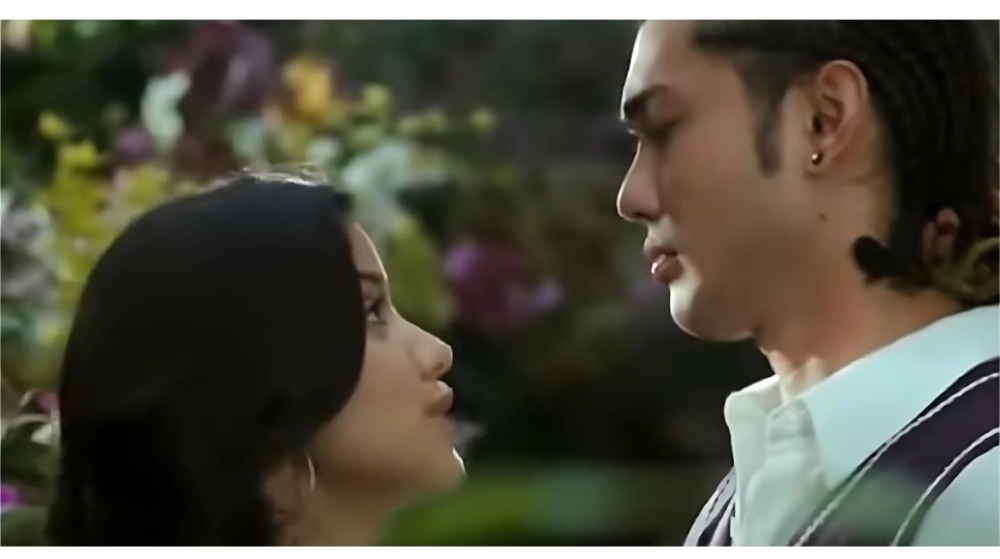KUALA LUMPUR, Nov 17 — Malaysia's literary scene is thriving and books continue to captivate readers as they have for years.
Some eventually get the unique opportunity to be brought to life visually — but while some film adaptations are praised for their ability to capture the essence of the original work — others have sparked heated debates or controversies
Here are some of the best and most controversial adaptations of Malaysian books to screen.
Best adaptations
Lagenda Budak Setan (2010)
One standout adaptation is Lagenda Budak Setan, based on the beloved novel by Ahadiat Akashah.
The film narrates the tumultuous romance between Kasyah (Farid Kamil), a rebellious youth, and Ayu (Lisa surihani), the new girl in town.
Her challenge for him to change, leads to a gripping journey of love and heartbreak.
The film's compelling narrative and strong performances earned it two awards at the 23rd Malaysian Film Festival: Best Original Story and Best Actress for Lisa Surihani.

The Garden of Evening Mists (2019)
Directed by Tom Lin Shu-yu, The Garden of Evening Mists beautifully captures the essence of Tan Twan Eng's critically acclaimed novel.
The film follows Yun Ling (Lee Sin-je), a war survivor, haunted by her sister’s death in a Japanese internment camp, seeks to honour a promise by creating a Japanese garden, only to uncover dark secrets and a hidden treasure.
This poignant adaptation has garnered significant acclaim, winning three awards at the 2021 Malaysian Film Festival, including Best Original Story, Best Visual Special Effects, and Best Actress for Lee Sin-je.

Memoir Seorang Guru (2024)
The recently released Memoir Seorang Guru is getting attention.
Based on the Azizi Abdullah book, the film follows Sunan (Rosyam Nor), a headstrong primary school teacher seeking solace in a rural kampung school after the loss of his wife.
Despite its fresh release, the film has resonated deeply with audiences topping the chart in Netflix and quickly gaining popularity for its heartwarming nostalgia and emotional depth.

Controversial Adaptations
Hikayat Merong Mahawangsa (2011)
While Hikayat Merong Mahawangsa is a compelling Malay literary work — the resulting film anything but reflects that.
Blending history and romance, in the legendary stories of the Kedah kingdom, the film adaptation shifts the focus to Roman prince Marcus (Gavin Stenhouse) and Chinese princess Meng Li Hua (Jing Lusi), who flee political marriages, while the smuggler Merong Mahawangsa (Stephen Rahman Hughes) is drawn into a prophecy to unite the peninsula’s tribes and defeat a ruthless pirate sorcerer.
The film sparked controversy for straying from the original text, emphasising logic over the rich myths and legends that define the story.
Critics also argue that the international version, with its heavy use of English, diminishes the authenticity of Malay cultural heritage.
Ombak Rindu (2011)
Based on Fauziah Ashari's novel, the film follows the love journey of Izzah (Maya Karin), a village girl sold into prostitution, and Hariz (Aaron Aziz), a wealthy businessman, as they navigate the obstacles of their different worlds in pursuit of happiness.
While the film showcased excellent cinematographic techniques, there was the the legal dispute between the filmmakers and the novelist over compensation as well as severe criticism, primarily for an intimate scene that many found inappropriate, with women’s activists condemning it as degrading to women.
The portrayal of Izzah developing feelings for her rapist sparked outrage also raised significant concerns about the film’s message.
Suami Aku Ustaz (2015)
Based on Hannah Dhaniyah's novel, Suami Aku Ustaz follows Alisa (Nora Danish), a high school student who is forced to marry her cousin, a religious teacher at her school.
Overall, reviews for the film were positive, with most praising the chemistry between the two lead actors, Adi Putra and Nora Danish.
Despite this, the film sparked controversy for allegedly endorsing child marriage, with critics arguing that it perpetuated harmful stereotypes about relationships.
In response, the producers defended the film as a moral counter to promiscuity, which only deepened the debate within society.
Recommended reading:






















